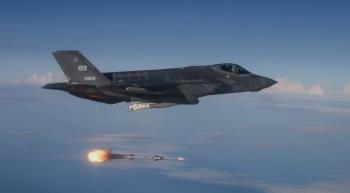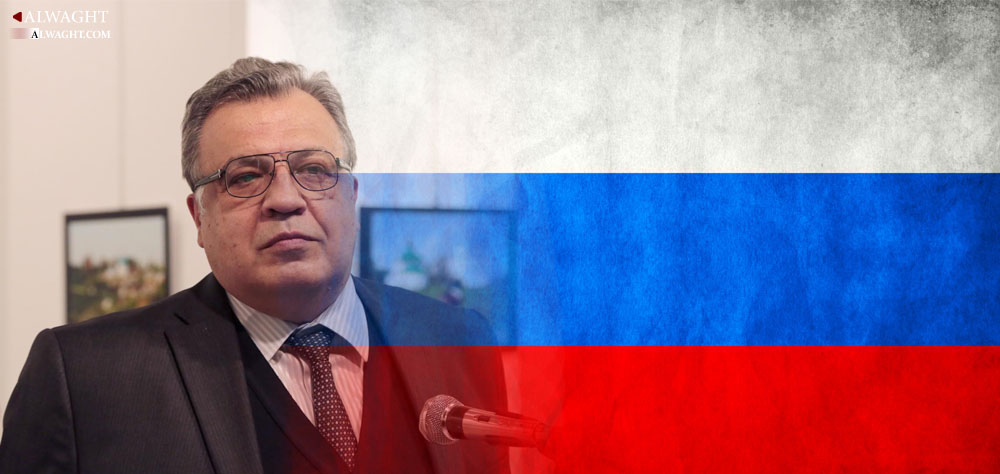Alwaght- The Russian ambassador to Turkey Andrey Karlov was shot dead at the last hours of Monday by an Ankara police officer named Mevlut Mert Altintas while addressing the attendees of the opening ceremony of an art exhibit called “Russia through the Turk's eyes”.
Following the incident, a slew of analyses flooded the media about the assassination, the motivations, and the possible hands behind it. Some said that the assassination came to spoil the newly-unfrozen Russian-Turkish relations. Some others suggested that the killing was done to overshadow a meeting by the Russian, Iranian, and Turkish foreign ministers set to be held next day. These were just part of the speculations offered by the experts and analysts about the assassination.
Generally, this incident, which is almost unmatched in its kind, can trigger happening of new developments and equations across the West Asia region, or even in the whole world. Due to significance of the case, the following note sheds light on the reasons behind the killing of the Russian ambassador in a couple of main points.
More than any other thing about the incident, the timing of it has caught attention and busied views of the regional analysts because it took place just a day before a tripartite meeting between the foreign ministers of Iran, Russia, and Turkey planned to be held in Moscow. The meeting’s main agenda was the Syrian crisis and discussing ways to find a political solution for it. But it was never limited to discussion of the Syrian conflict, and it meant, additionally, to present a model for settling the West Asian security crises in the long run. Therefore, it can be noted that assassinating the Russian ambassador aimed at overshadowing the three-nation conference in a bid to prevent rise of a tripartite security and political model.
But one of the main drives of behind-the-scene hands that ordered the assassination, which is highlighted by the Turkish and Russian officials, is an attempt to destroy the process of normalizing and boosting the Russian-Turkish relations. Ankara and Moscow in past few months made moves towards a thaw, seeking close and convergent stances on a variety of cases, majorly the Syrian crisis. The Russian President Vladimir Putin in his televised address of assassination of the ambassador said: “killing the Russian ambassador to Turkey was a despicable provocation aimed at spoiling the normalizing the Russo-Turkish ties and derailing Moscow’s attempts to find, with Iran and Turkey, a solution for the Syrian crisis.” On the other side, the President Erdogan of Turkey branded the crime "a provocative move", adding that this incident came while Ankara and Moscow were busy normalizing ties. He added that Russia and Moscow were too determined to fall into the trap of the plotters.
Meanwhile, a recent agreement between Russia and Turkey on exit of the armed groups from eastern Aleppo as well as exit of the civilians from Foaa and Kafria towns has proved not favored by the Western-Arab camp and raised its hackles, especially that the evacuation operation was discussed and arranged without the above-mentioned camp. Provoked by the Western and Arab sides, some of the members of Jabhat Fateh al-Sham (formerly al-Nusra Front) have set fire to seven buses meant to carry terrorist fighters out of eastern Aleppo in a bid to set up hurdles ahead of the agreement enforcement. In fact, the Western and Arab sides were described riled to see Turkey helps the evacuation process without consultation with them. They tried to display their excessive discontent through disturbing a smooth process of accord implementation.
Therefore, this incident can spoil the Russian-Turkish political normalization process and create a sense of mistrust and pessimism between the two sides, especially that the attacker was an officer of the Turkish police and the word spread that he had been Erdogan’s bodyguard for some time.
But another reason behind the killing can be linked to the Syrian government’s victory in Aleppo battle and its big effects on different aspects of the conflict in Syria. The influences of the Aleppo win, which is considered as a triumph for the Damascus government and its allies, have been so big that the Western and Arab media following the Aleppo liberation used an array of techniques and showed a reversed image of Aleppo conditions in a bid to cut impacts of the victory on the battlegrounds. They also wanted to block such a big achievement of the Syrian government from affecting public opinion in the region and the world. But the impacts of the breakthrough were too big to allow the Western media's propaganda to yield any results. So, again, killing the ambassador intended to distract the public opinion and distance the global views from the Aleppo liberation. To look at it from a different dimension, this is a step with the aim of returning morale to the militants fighting the Syrian government after the heavy blow they received in Aleppo.
But there is another scenario, not unlinked to developments of the Syrian crisis. It is an effort aimed to hit the attempts for finding settlement for the 6-year Syrian struggle. Some of the regional parties like Saudi Arabia and the Israeli regime strive after this goal and want its actualization with any instruments. The Syrian government’s liberation of Aleppo and Turkey’s shift of stance on Syria’s crisis– the signs of which are Ankara's efforts to propose an agreed-upon political solution– caused the pro-violence and destabilization sides to display worry about the current Syrian developments including transfer from military to political solutions for the final settlement of the crisis. The analysts suggest that the pro-terrorist Western-Arab camp's concerns about the Turkish U-turn to Russia and Ankara-Moscow convergence in Syria case outstrip the same camp's concerns about Aleppo liberation, and so the bloc spares use of no instruments to impede actualization of a Russian-Turkish closeness.



























